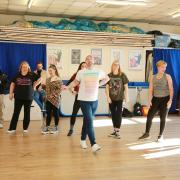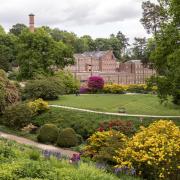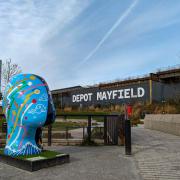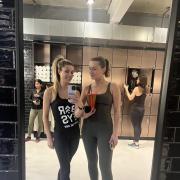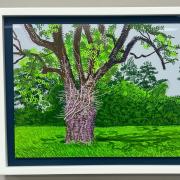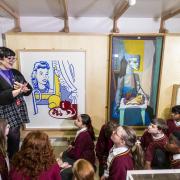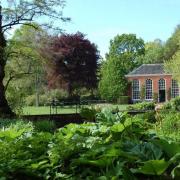Artist wins the Turner prize and the Hepworth Prize in 2016.

Trawling the press the day after the winner of contemporary art’s most prestigious accolade was announced, one report stood out. It was from the London Evening Standard and it read ‘London artist Helen Marten has won the Turner Prize.’
Well, it may be true that the 31-year-old sculptor lives in London now but she is actually from Macclesfield, which in a way makes her achievement all the more extraordinary.
Helen is a former pupil of King’s School in Macclesfield and this was her second major award in a month, having scooped the Hepworth Prize for sculpture at the end of 2016.
She left King’s in 2004 to study art at the Ruskin School of Fine Art at the University of Oxford and has since developed a global reputation for her lyrical but disconcerting installations. They use a combination of everyday objects to pose questions to the viewer.

As the 31-year-old was presented with the £25,000 prize by writer Ben Okri at a ceremony at London’s Tate Britain gallery, last month, she confirmed she would be sharing the winnings with her fellow nominees. She did the same with the £30,000 Hepworth prize : ‘I don’t feel I need to politicise that gesture,’ she said. ‘I can do it quietly.’
Marten has won the respect of the art world for her complex sculptures created from a bewildering array of materials that she invites people to investigate, as they might an archaeological dig.
Her response to following in the footsteps of Jeremy Deller, Martin Creed and Grayson Perry - previous recipients of the Turner Prize - was that she felt ‘numb’ but ‘deeply honoured’.
The chair of judges, Tate Britain director Alex Farquharson, said Marten, was creating work which has real longevity and is using objects, forms and images in a similar way to a poet using language.

‘The judges were impressed by the complexity of the work, its amazing formal qualities, its disparate materials and techniques and also how it relates to the world...how it often suggests meaning, but those meanings are all in flux somehow. One image, one form becomes another.’
Helen’s former A Level art teacher and King’s current Head of Art, Debbie Inman, said: ‘I had the pleasure of teaching Helen throughout her time at King’s. Her talent was evident even as a young artist. She was technically very able and her drawing and painting skills were outstanding, creating some beautiful portrait work in particular, but it was the strength of her ideas that set her apart.
‘Helen’s success comes as no surprise as her capacity for original, intelligent, quirky thought, expressed through her art, coupled with tremendous technical ability meant she was always destined for something big. Helen was modest about her talents. She had an exceptional ability to motivate herself and work independently, again an essential quality for a freelance artist to develop and which set her up for great things when she left us to study Fine Art at Oxford, eventually taking the top first in her year in 2008.’
Following her graduation she returned to Macclesfield to create work in her parents’ garage, then had her first solo show just two years after she graduated, when she was invited to exhibit in Naples by a gallerist who had seen her work online. Other international shows followed and she had her first exhibition in a UK public gallery in 2012 at the Chisenhale, in East London, called Pink Salad which brought her into the spotlight.

Helen is now part of the rarefied upper reaches of the art world with Guardian art critic Adrian Searle decreeing that she ‘thinks differently from the rest of us’. Similarities with Groucho Marx come to mind, he who never wanted to belong to a club that would accept him as a member. When receiving the inaugural Hepworth prize, Helen expressed her discomfort at the honour and said she felt, ‘Frankly, a little embarrassed about it all’.






